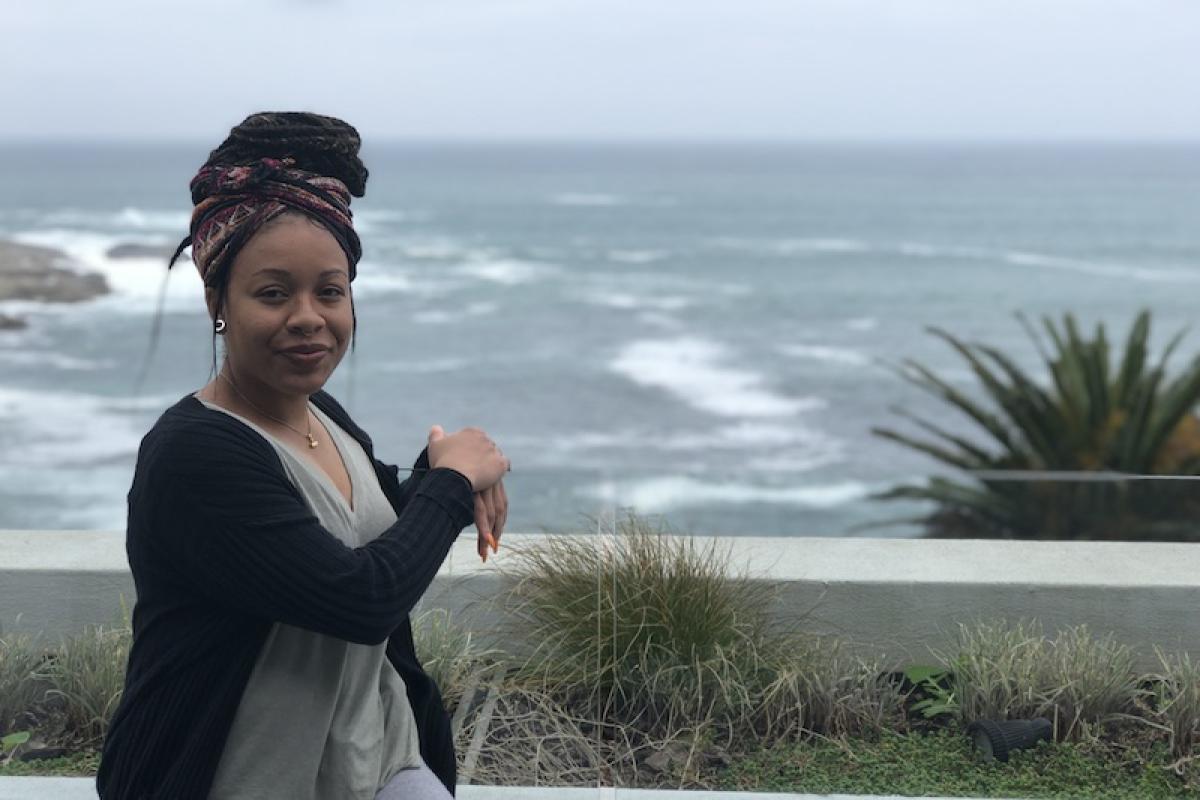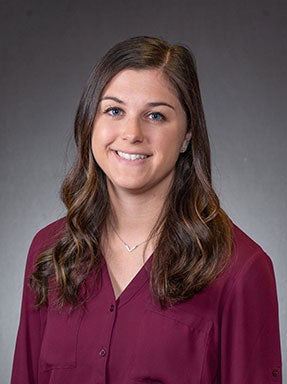Q&A: Celebrating Black History Month With DU Student Kahlea Hunt-Khabir

The University of Denver is committed to living our values of diversity and inclusion. We recognize that our community and institutional success is dependent on how well we engage and embrace the rich diversity of our faculty, staff, administrators, students and alumni. With that shared value in mind, throughout this academic year, we plan to publish a series of articles to celebrate cultural and ethnic heritage months. In partnership with Human Resources & Inclusive Community and the Staff of Color Association (SOCA), we will feature a staff or faculty member and a student in recognition of each heritage month, along with an event to honor one another and learn about our unique differences.
Kahlea Hunt-Khabir is a graduate student studying higher education in the Morgridge College of Education. She earned her bachelor’s degree in ethnic studies and general sociology from Colorado State University in 2017. Hunt-Khabir hopes her research will create more equitable spaces in education through critical pedagogies and representation for black women. She shared her experiences via email with the DU Newsroom.
DU just wrapped up the 2020 Diversity Summit, and you were selected to do a Q&A with the keynote speaker and cofounder of Black Lives Matter, Patrisse Cullors. What was your big takeaway from your conversation?
It was insightful to hear how, in the creation of #BlackLivesMatter, there was conversation of whether it should be “people of color lives matter” or “our lives matter.” In that moment I couldn’t help but be reminded of the power blackness holds and the significance of being unapologetic in an environment that wants you to hate being black. To that point, my conversation with Patrisse Cullors was a reminder of why we cannot succumb to the shifting inclusionary politics of this work. She emphasized the importance of social justice practitioners centering black liberation, because the liberation of black folks means the liberation of all people.
Tell us more about your work on DU’s “Seeking Grace” project.
“Seeking Grace” began in 2013, with Dr. Nicole Joseph, with the goal of celebrating and developing a greater understanding of the lived experiences of black alumnae at the University of Denver. Dr. Joseph and Kate Crowe started this project conducting interviews with living alums, conducted extensive research to identify early alumnae and developed an exhibition documenting the history of early (pre-1945) black women at DU.
Starting the 2018–19 school year, I joined the research team alongside my colleagues Elizabeth Ndika and Patrice Greene, and we sought to continue doing the work that was started in 2013. Our guiding question was: In what ways has the experience of black women at the University of Denver changed or stayed the same throughout time? We began conducting interviews of alums from the ’70s to 2018 and started to see some daunting similarities. Although more black women are coming to DU, their experiences have not gotten significantly better. The research we gathered was used to revamp the exhibition, which was featured at the Blair-Caldwell African-American Research Library in March 2019.
As of right now, “Seeking Grace” has taken a turn from a more traditional research project to a short documentary. This documentary will explore black life in Denver starting in the early 1900s, with an emphasis on the black women who graduated from DU. With the rise of gentrification in some of Denver’s prominent black communities, it felt important to tell a story of what it meant and what it means to be a black woman in Denver. The current team includes myself, Rachel Taylor and Stevie Gunter, and we hope to have this documentary finished by June 2020. It will live in the AAC, Blair Caldwell Library and possibly the African American Museum of the West.
What was the most important thing you learned during your time in Brazil working on the autoethnography Black + Woman in Brazil: The Search for Inclusion & Representation?
In my autoethnography, I made a note of the importance of continuously pushing for a transnational approach to understanding positionality within the African diaspora. This includes analyzing from coast to coast, keeping in mind how one may be situated due to colonialism or imperialism, and how that has evolved in order to create innovative approaches to achieving equity transnationally. In many ways I learned that the revolution is in the community and why it is imperative to center work in my communities.
Your research focuses on racial equity, specifically examining the socialization process of black women in higher education from a comparative African diaspora lens. Why is this research so important and what impact do you hope to have?
Although I have always had a research interest related to black women in education, it wasn’t until I started my master’s at DU that I made the shift to study socialization. Attending a predominantly/traditionally white, small, private institution put the microscope on the ways many black women in this environment are simply surviving and not necessarily thriving. It is my belief that this is due to perpetual socialization cycles of institutional racism that then intersect with sexism, making a unique experience. By understanding these cycles of socialization, it is my hope to provide tools for black women to move from surviving to thriving in the academy as they see fit.
You are focusing on how to create and maintain equitable educational spaces for black girls and women. What changes do you want to see?
In an ideal world, I would like to see institutions like DU confront their anti-blackness and begin making and sustaining space for black people in general and black women specifically. This starts by hiring more black women as faculty and staff, as well as intentionally recruiting black women students from local public high schools. With this, there must be a true dedication to cultivating an environment that affirms black knowledge and gives black students the resources and support to flourish.








